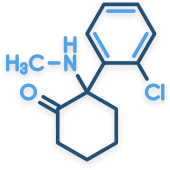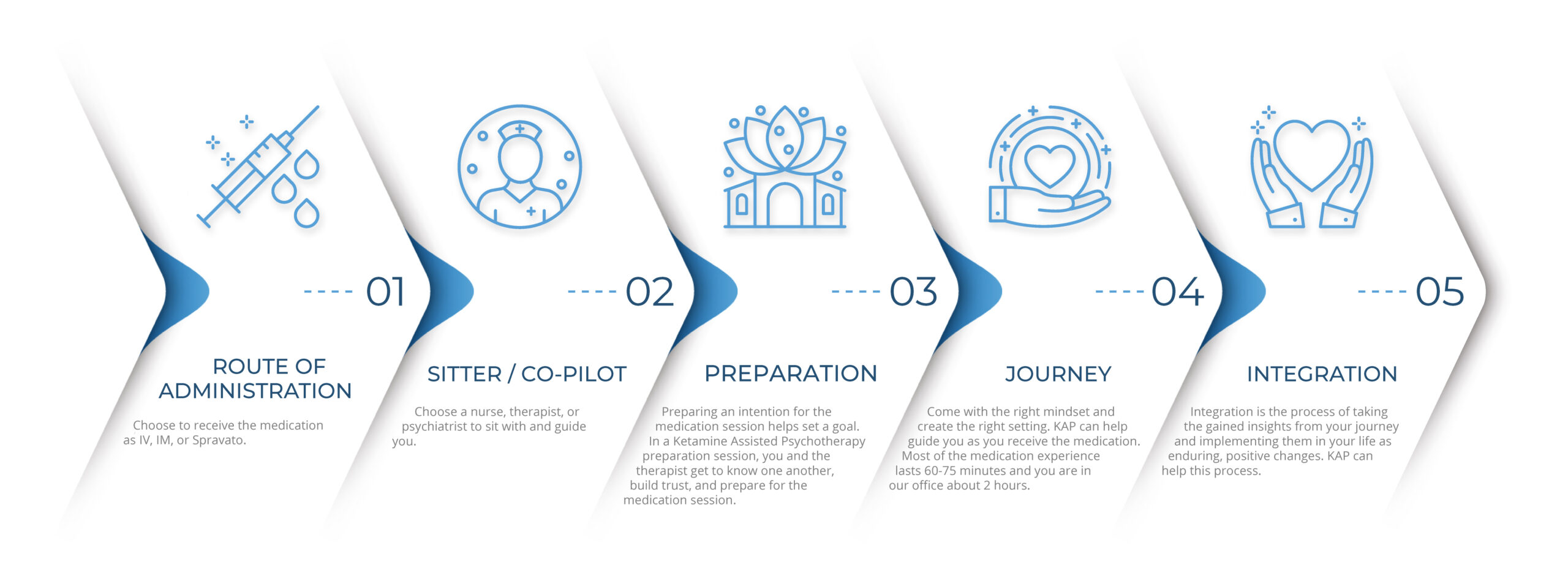KETAMINE THERAPY

“Recent data suggest that Ketamine, given intravenously, might be the most important breakthrough in antidepressant treatment in decades.”
– Thomas Insel, MD, Director of the National Institute of Mental Health, 2002-2015
If a healthcare professional has recommended this treatment to you, we invite them to complete this referral form.
TREATMENT-REFRACTORY DEPRESSION
Depression, formally known as Major Depressive Disorder, is a common and serious psychiatric condition that negatively affects how a person feels, thinks, and functions. Depression can cause inappropriate feelings of sadness and a loss of interest in activities a person once enjoyed and can decrease a person’s ability to function at work and at home. Depression is the leading cause of disability worldwide and is associated with a 10-year reduction in life expectancy.1,2 Though antidepressant medications work, current options still fail to benefit about 30% of patients, even when combining multiple antidepressants and applying various augmentation strategies.3 Depression is considered “treatment-refractory” when it has not responded adequately to 2 or more traditional antidepressant medications.
KETAMINE FOR TREATMENT-REFRACTORY DEPRESSION
Ketamine has been used safely as a surgical anesthetic since 1970. Research showing its benefit as a safe, rapidly-acting antidepressant medication has been published since the early 2000s. In the last several years, we have seen more and more studies showing its safety and effectiveness in treatment-resistant depression (TRD). In 2017, the leading psychiatric journal, JAMA Psychiatry, published formal treatment guidelines on the use of ketamine in the treatment of mood disorders. A purified form of ketamine for intranasal use, esketamine (brand name Spravato), was FDA-approved for TRD in March 2019. Generic ketamine’s use for treatment of depression or other psychiatric conditions is off-label and has not been approved by the FDA, but expert consensus suggests there may be more benefit due to dosage flexibility and higher blood levels achievable with generic ketamine.
KETAMINE ACTS LIKE NO OTHER ANTIDEPRESSANT
Ketamine therapy is a powerful treatment option as part of a comprehensive care plan for depression and other mood disorders. This ability to reduce self-harm automatically puts ketamine into a very select group of medications, along with lithium and clozapine. Reducing self-harm is a result which no other antidepressant has ever been proven to have.
Ketamine blocks glutamate, a neurotransmitter associated with stress, while most antidepressants act on the neurotransmitters serotonin, dopamine, or norepinephrine. Ketamine has also been shown to help stimulate the regrowth of neurons in a brain stressed by depression,4 likely by increasing brain-derived neurotrophic factor (BDNF).5 Ketamine can help with one of the most serious symptoms of depression: suicidal thinking. Multiple studies have shown that “a single ketamine infusion rapidly reduced the severity of suicidal thinking, within 24 hours in more than half the patients, and with benefits observed up to 1 week.”6
THE TOP
BENEFITS OF
KETAMINE
THERAPY
- Effective: 70% response rate7 in patients where adding another antidepressant has less than 50% chance of working.
- Fast-acting: potential benefit as early as 24 hours after the first treatment vs. weeks for traditional antidepressant pills.
- Safe & well-tolerated: Few side effects after a few hours. So safe, it is the anesthetic of choice for emergency procedures in children.
- Addresses self-harm: Can reduce suicidal thoughts or behaviors
- Simple: Can replace daily antidepressant pills
Learn More about Ketamine Therapy at The Mental Health Center
References:
1. World Health Organization, Media Center, Depression Fact Sheet, Updated March 22, 2018. https://www.who.int/en/news-room/fact-sheets/detail/depression.
2. Walker ER, McGee RE, Druss BG. Mortality in mental disorders and global disease burden implications: a systematic review and meta-analysis. JAMA Psychiatry 2015; 72(4): 334–341.
3. Rush AJ, Trivedi MH, Wisniewski SR, Nierenberg AA, Stewart JW, Warden D, et al. Acute and longer-term outcomes in depressed outpatients requiring one or several treatment steps: a STAR*D report. Am J Psychiatry 2006; 163: 1905–17.
4. Moda-Sava RN et al. Sustained rescue of prefrontal circuit dysfunction by antidepressant-induced spine formation. Science 2019; 364: 1–11.
5. Schwartz J, Murrough JW, Iosifescu DV. Ketamine for treatment-resistant depression: recent developments and clinical applications. Evid Based Ment Health 2016; 19(2): 35–38.
6. Wilkinson ST et al. The effect of a single dose of intravenous ketamine on suicidal ideation: a systematic review and individual participant data meta-analysis. Am J Psychiatry 2018; 175(2): 150–158.
7. Murrough JW, Perez AM, Pillemer S, et al. Rapid and longer-term antidepressant effects of repeated ketamine infusions in treatment-resistant major depression. Biol Psychiatry 2013; 74: 250–6.


